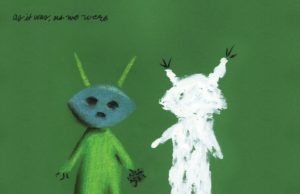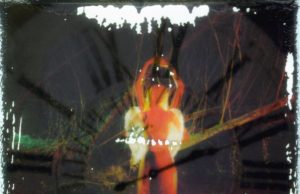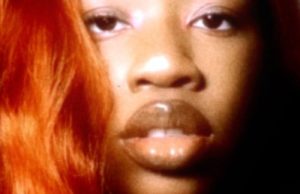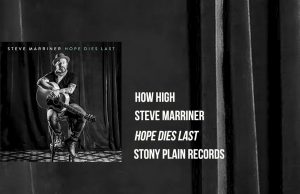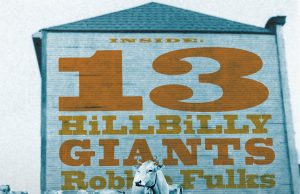 Everybody ripped off The Rolling Stones’ Satisfaction — even the Stones themselves.
Everybody ripped off The Rolling Stones’ Satisfaction — even the Stones themselves.
The summer of ’65 hit was the band’s first No. 1, and widely considered to contain one of the greatest rock ’n’ roll guitar riffs of all time. As such, there are probably hundreds of cover versions. Forget those. That’s no surprise. What I’m more interested in are the ripoffs. You know — bands who decided, “We need a Satisfaction of our own.” One such band might well be Buffalo Springfield.
Neil Young claimed, unlike many of his other songs, it only took him five minutes to write Mr. Soul. The June 1967 single was also the opening track from the band’s sophomore album, Buffalo Springfield Again. It has a riff which is an unabashed ripoff of the one from Satisfaction.
But there were hundreds of bands who did this and flew under the radar. Author Mark Nobles claims more than 180,000 bands formed in the United States alone between 1964 and 1965 — several thousand of those were so-called “garage bands” who were directly inspired by proto-punk surf music like that of Dick Dale. Another major influence was the distorted guitar of Dave Davies on The Kinks’ 1964 hit You Really Got Me — supposedly achieved by slicing the cone of his guitar amp speaker with a razor blade, and poking it with a pin. You Really Got Me topped charts in the U.K., but Satisfaction was an international No. 1. Its distinctive guitar riff, played by Keith Richards using a Maestro Fuzzbox, probably inspired the creation of hundreds of bands the week it came out.
Otis Redding — whose cover of Satisfaction came out in February 1966 — discovered singer Johnny Daye, who issued a handful of Stax singles from 1965-1967. Daye co-wrote What I’ll Do For Satisfaction with Steve Cropper of Booker T & the M.G.’s. It’s a pretty obvious “homage” to (I Can’t Get No) Satisfaction. Still a bloody great track, though. Cropper has a pretty interesting tie to the Redding cover as well. He’s the reason why the lyrics are quite a bit different. Cropper listened to the Stones track on his turntable and wrote down what he thought Mick Jagger was singing. In the studio, Redding started with Cropper’s lyrics, but quickly tossed the sheet of paper on the floor and just winged it. That’s why, instead of the final verse:
“When I’m ridin’ ’round the world
And I’m doin’ this and I’m signing that
And I’m tryin’ to make some girl
Who tells me baby better come back, maybe next week
‘Cause you see I’m on a losing streak
I can’t get no…”
… You get this:
“Not ever, woman, she waits long time
This little girl is tryin’ to put me down
I keep on runnin’ round in my sleep
I keep on messin’ up any beat
I keep on rockin’, I try to find me
Somebody to love me
And give me some reaction
And I can find nobody, no, no, nobody
Give me no reaction, ‘faction, ‘faction got to have it
Satisfaction, we got to have it
Satisfaction, earlier in the morning
Satisfaction, later in the evening
Call it satisfaction, in the midnight hour.”
It’s undeniably awesome. So much so that even the Stones sometimes perform it this way live.
I’ve seen some music types suggest the Stones borrowed the riff for Satisfaction from The Beatles’ rendition of Anna (Go To Him) from their debut album Please Please Me in 1963. This is hogwash, but it is true that the guitar refrains are quite similar, except the lick in Anna is moved up one fret. Even earlier than Anna is Roy Orbison’s Oh, Pretty Woman — which also has a similar riff to Satisfaction. However, I tend to believe Richards’ story that he dreamed it.
But speaking of The Beatles, there’s a whole cluster of songs with similar riffs — in a family with Satisfaction. Pre-dating the Stones’ hit was the John Lennon-penned single I Feel Fine from November, 1964. This song, as well as the October ’65 single Day Tripper (also primarily penned by Lennon) both were inspired by Bobby Parker’s July 1961 single Watch Your Step. There are probably a few people who suspect Day Tripper was inspired by Satisfaction, but it’s been well-established to have been Watch Your Step. Lennon himself said it was one of his favourite songs and admitted to using the lick “in various forms.” Lennon also pointed to The Allman Brothers Band song One Way Out as an obvious copy. He’s not wrong, and you can also hear the lick in the intro to Led Zeppelin’s Moby Dick and Deep Purple’s Rat Bat Blue, among others. The Beatles’ 1968 single, the Paul McCartney-penned Paperback Writer, pretty closely resembles I Feel Fine and Day Tripper — and thus, Watch Your Step.
Here’s something cool (and Canadian!) — the riffs from Satisfaction and Day Tripper actually complement each other. April Wine figured that out in 1979. The opening track on their album Harder… Faster is I Like To Rock. In the song’s coda, one guitar plays the Satisfaction riff once through before another joins in with the Day Tripper riff — and then the song’s own riff is added overtop and it sounds quite great.
Back to Satisfaction copies or derivatives… Not to be confused with the reggae group, The Wailers were a bunch of high school kids from the Pacific northwest who emerged in 1959. In 1965 they put out a single and album called Out Of Our Tree. There’s no way it wasn’t inspired by Satisfaction. To my ear, Hungry Freaks Daddy — the opening track from the debut album by The Mothers of Invention, Freak Out (1966) — sounds an awful lot like Out Of Our Tree.
And then there’s a slew of songs from that era which are “reminiscent” of the Satisfaction riff, in that they feature fuzz guitar and single-note licks rather than chord licks like You Really Got Me by The Kinks. Some of these tracks include Psychotic Reaction by Count Five, How Is The Air Up There? by La Dee Da’s, and She Makes Me Feel Better by Gary Walker. (You’ll find all of these on the playlist below!).
English rock band The Equals had a big hit with Baby Come Back in 1968. For their followup, it seems like they turned to The Rolling Stones. The track Softy Softly, which you’ll find on their album Surpeme, is kind of a ridiculous ripoff of Satisfaction.
Now, if you look oline for the most-played songs at Rolling Stones concerts, you’ll discover that Satisfaction comes in at No. 5 of 2,124 songs. That’s the problem with an all-time banger classic — no doubt Richards has benefitted greatly from writing that riff, but he also has had to play it at least 985 times since 1965. But get this — you can basically double that number because the Stones’ most-played song is Jumpin’ Jack Flash from 1968, which is basically a case of the band ripping off their own song. They’ve played it more than 1,200 times — basically at every show since it came out. The two songs have very similar riffs, except they’re in different keys and Jumpin’ Jack Flash has a capo on the second fret.
Naturally, there are also a whole bunch of songs which are pretty similar to Jumpin’ Jack Flash, and by extension to Satisfaction. One confirmed effort is the Boz Scaggs-penned Steve Miller Band track Dime-A-Dance Romance, which closes the group’s sophomore album Sailor from October 1968. Eleven years later, The Kinks put out the album Low Budget. It flopped in the U.K., but was a hit in the States, where it was recorded. The second track, Catch Me Now I’m Falling, has a piano intro and verse before it suddenly turns into Jumpin’ Jack Flash at 54 seconds in.
One of the biggest hits of the ’80s owes a debt to Satisfaction — the iconic guitar refrain of Dire Straits’ Money For Nothing sure reminds me of Keith’s famous lick from 20 years earlier. We can find another, finally, in the ’90s from none other than Janet Jackson. What I’ll Do, from her album Janet, is actually a cover of the Johnny Daye track from 1967, which she issued as a single with Whoops Now in 1993. Might be my favourite Janet song.
Here’s your playlist:
• • •
Area Resident is an Ottawa-based journalist, recording artist, music collector and re-seller. Hear (and buy) his music on Bandcamp, email him HERE, follow him on Instagram and check him out on Discogs.


























